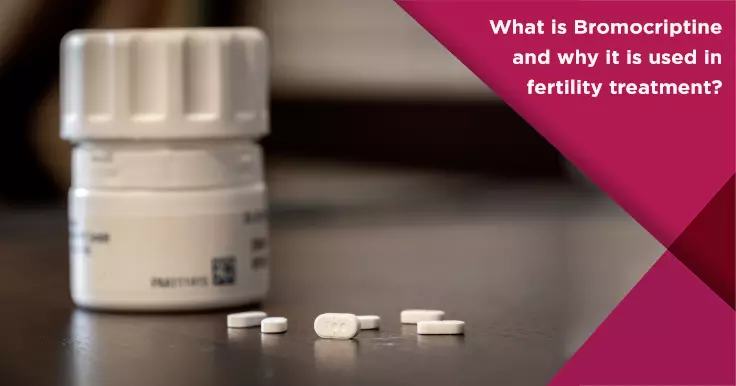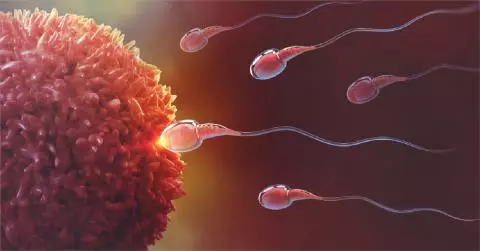Bromocriptine in Fertility Treatment:

Infertility is a common condition and may be caused by many different factors. Hormone fluctuations are one of the most common causes of infertility. Prolactin is a hormone produced by the pituitary gland and is responsible for stimulating milk production in lactating mothers and inhibiting ovulation for the first few months after childbirth. High levels of prolactin amongst women who are not breastfeeding can cause infertility. This is also known as hyperprolactinemia.
In such cases, Bromocriptine or cabergoline are common medicines used in fertility treatments. They are administered orally and is available in the form of tablets and capsules.
How do Prolactin Levels Affect Fertility?
In cases of severely high prolactin levels, ovulation may stop completely. Without the release of an egg by the ovaries, it is virtually impossible for a woman to conceive naturally. In cases where Prolactin levels are not so severely high, ovulation may be disrupted once in a while. This results in irregular menstrual cycles that make it hard for a couple to approximate when a woman is most fertile.
Mildly high prolactin levels do not affect ovulation but may hinder the production of progesterone hormones after ovulation. This causes a luteal phase defect wherein the uterine lining does not become thick enough. As a result, the embryo may not be able to attach itself to the uterus and the woman may miscarry.
Nowadays, only cabergoline is used to treatment hyperprolactinemia
 Infertility Counselling
Infertility Counselling Female Infertility Treatment
Female Infertility Treatment Andrology Treatment
Andrology Treatment Fertility Enhancing Surgeries - Female
Fertility Enhancing Surgeries - Female Fertility Enhancing Surgeries - Male
Fertility Enhancing Surgeries - Male Endoscopy Treatment
Endoscopy Treatment IUI Treatment
IUI Treatment IVF Treatment
IVF Treatment ICSI Treatment
ICSI Treatment Advanced IVF Solutions
Advanced IVF Solutions Embryology
Embryology Vitrification Egg, Embryo, Sperm Freezing
Vitrification Egg, Embryo, Sperm Freezing Preimplantation Genetic Testing (PGT)
Preimplantation Genetic Testing (PGT) Donation Program Embryo / Egg / Sperm
Donation Program Embryo / Egg / Sperm Self-cycleTM IVF
Self-cycleTM IVF

 Self-cycleTM IVF
Self-cycleTM IVF









